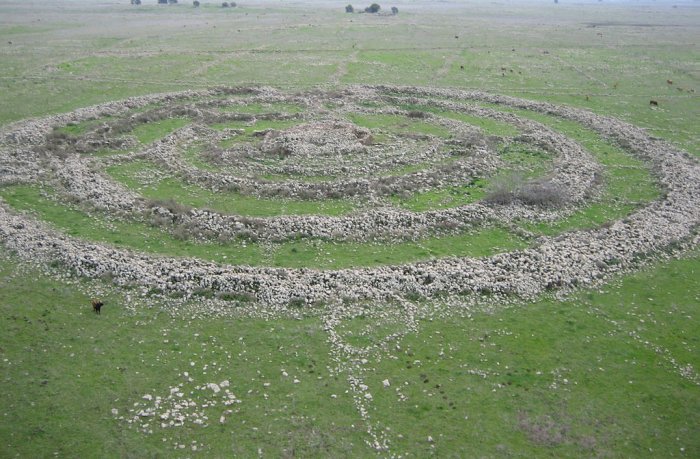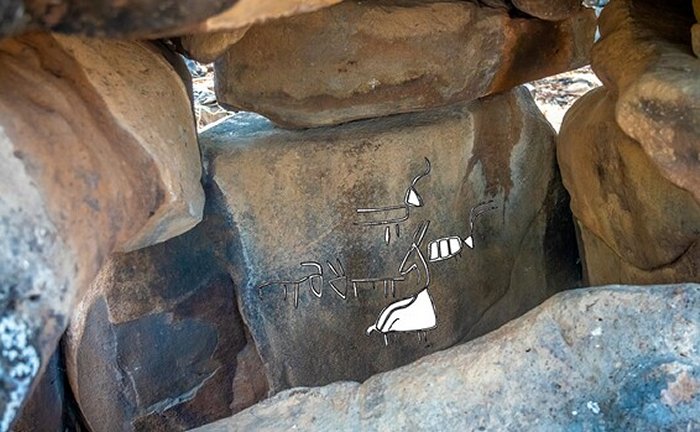Unknown Lost Civilization Of Ancient Megalithic Super-Builders In The Middle East – Can Prehistoric Rock Art Solve The Mystery?
Jan Bartek - AncientPages.com - During the Middle Bronze Age, about 4,000-5,000 years ago, an unknown civilization was present in the Middle East. These mysterious ancient super-builders left behind hundreds of enormous stone structures. Who were these people?
Where did they come from, and what happened to them?
The strangest of all ancient structures is known as Rujm el-Hiri – Gilgal Refaim in the Golan Heights. Credit: Public Domain, CC BY-SA 3.0
These are questions archaeologists have tried to answer for many years. The discovery of prehistoric rock art may now shed new light on the identity of these enigmatic super-builders.
There are several dolmens of various sizes and shapes scattered in the region. Dolmens are megalithic tombs. One theory is that they were constructed by nomadic tribes who buried their dead in central holy places. The dolmens in Northern Israel have not been properly examined but based on current knowledge, it seems some of them were reused for secondary burials long after they were erected.
Who Were The Mysterious Ancient Super-Builders In The Middle East?
Scientists who have studied cave carvings discovered on walls of four different dolmens in the Galilee and Golan regions assume the unknown super-builders created the prehistoric rock art.
What can we learn from these ancient carvings? The depictions of various animals tell a lot about their world. On the carvings, we find horned animals such as ibexes, antelopes, and wild cattle. At another dolmen, the top stone was designed to resemble a human face, and a third dolmen features carvings of geometric shapes.
"A few years ago, a panel bearing wall drawings was discovered in a huge dolmen in a field near Kibbutz Shamir," Professor Agone Sharon, head of the MA program in Galilee Studies at Tel Hai Academic College, explained. That was the first time rock art had been documented in the context of dolmens in the Middle East. Following that discovery, we started a research project to locate and document art on dolmens throughout the Land of Israel.
At the Yehudiya Forest nature Reserve archaeologists discovered murals that can offer new information about the mysterious super-builders of the Middle East. Credit: Israel Antiquities Authority / Yaniv Berman
We have covered dozens of dolmens throughout the Upper Galilee and the Golan Heights in an attempt to reveal the world of the members of this mysterious culture, which existed here over 4,000 years ago and left only dolmens as proof of their rich culture," Professor said.
His colleague, archaeologist Uri Berger of the Upper Galilee Department at the IAA, added that "many dolmens have been found in Israel and neighboring countries, but we knew virtually nothing about this civilization of super-builders, other than the remains of the enormous structures they left behind as testimony of their existence. The cave carvings offer us the first glimpse of the culture behind the construction of the dolmens."
Rujm el-Hiri And The Biblical Giant Connection
One of the most amazing of these dolmens is called Rujm el-Hiri. The name can be translated as the stone heap of the wild cat. This ancient megalithic monument consisting of concentric circles of stone with a tumulus at the center is located not far from the east of the coast of the Sea of Galilee. In the same area, there are hundreds of dolmens, and the site's purpose is still an ancient mystery.
"The two major problems concern the function and the date of the site. There is no agreement as to its function, and no other similar structure is known in the Near East; likewise, its date is unknown, because of the absence of datable artifacts in its immediate vicinity." 1
Scientists can still not decide whether Ruijm el-Hiri was used as an astronomical calendar, ritual center, or burial site.
In the Bible, many stories deal with the Rephaim, a group of giants described as "a mighty people with tall stature who lived in Canaan. Ne'eman, Yuval (1925-2006), an Israeli theoretical physicist, military scientist, and politician, suggested the Rujm el-Hiri site is probably the source of the legends about "a remnant of the giants" or Rephaim for Og. 2
Could at least some of the dolmens in the Middle East have been built by ancient giants?
Written by Jan Bartek - AncientPages.com Staff Writer
Updated on December 12, 2022
Expand for references- Zohar Mattanyah, "Rogem Hiri: A Megalithic Monument in the Golan." Israel Exploration Journal 39, no. 1/2 (1989): 18-31.
- Ne'eman, Yuval. "Astronomy in Israel: From Og's Circle to the Wise Observatory, Tel Aviv University.
- Israel Hayom
More From Ancient Pages
-
 Among Ancient Maya Cacao Was Used In Celebrations And Was Common To All People
Archaeology | Sep 27, 2022
Among Ancient Maya Cacao Was Used In Celebrations And Was Common To All People
Archaeology | Sep 27, 2022 -
 Ancient Intercontinental Underground Tunnels Built By Survivors Of A Great Catastrophe And The Snake God Connection
Featured Stories | Jul 4, 2018
Ancient Intercontinental Underground Tunnels Built By Survivors Of A Great Catastrophe And The Snake God Connection
Featured Stories | Jul 4, 2018 -
 On This Day In History: Declaration Of Arbroath – The Scots Reaffirm Their Independence – On Apr 6, 1320
News | Apr 6, 2016
On This Day In History: Declaration Of Arbroath – The Scots Reaffirm Their Independence – On Apr 6, 1320
News | Apr 6, 2016 -
 Legendary Grianán Of Aileach Built By God Dagda Of Tuatha De Danann Was Once The Royal Seat Of The Kingdom Of Ailech
Featured Stories | May 13, 2021
Legendary Grianán Of Aileach Built By God Dagda Of Tuatha De Danann Was Once The Royal Seat Of The Kingdom Of Ailech
Featured Stories | May 13, 2021 -
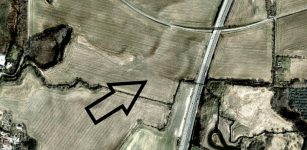 Archaeologists Uncover Secrets Of ‘Vallø Borgring’ Viking Age Circular Fortress
Archaeology | Oct 11, 2015
Archaeologists Uncover Secrets Of ‘Vallø Borgring’ Viking Age Circular Fortress
Archaeology | Oct 11, 2015 -
 One Of The Biggest Bronze Age Settlements On Orkney – Discovered
Archaeology | Dec 11, 2015
One Of The Biggest Bronze Age Settlements On Orkney – Discovered
Archaeology | Dec 11, 2015 -
 On This Day In History: ‘Devil’s Footprints’ Appeared In Devon, England – Feb 8/9, 1855
News | Feb 8, 2017
On This Day In History: ‘Devil’s Footprints’ Appeared In Devon, England – Feb 8/9, 1855
News | Feb 8, 2017 -
 Bonobos And Chimps: What Our Closest Relatives Tell Us About Humans
Featured Stories | Apr 6, 2023
Bonobos And Chimps: What Our Closest Relatives Tell Us About Humans
Featured Stories | Apr 6, 2023 -
 Lost Knowledge Of Energy And Crystal Technology In Ancient Egypt
Ancient Technology | May 17, 2019
Lost Knowledge Of Energy And Crystal Technology In Ancient Egypt
Ancient Technology | May 17, 2019 -
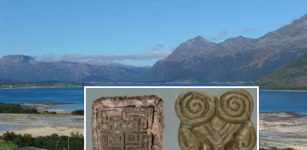 Unexpected Discovery Of Viking Trading Place In Norway Re-Writes History
Archaeology | Jul 22, 2020
Unexpected Discovery Of Viking Trading Place In Norway Re-Writes History
Archaeology | Jul 22, 2020 -
 Museum Classifies Roman Emperor Elagabalus As Trans – But Modern Labels Oversimplify Ancient Gender Identities
Featured Stories | Nov 28, 2023
Museum Classifies Roman Emperor Elagabalus As Trans – But Modern Labels Oversimplify Ancient Gender Identities
Featured Stories | Nov 28, 2023 -
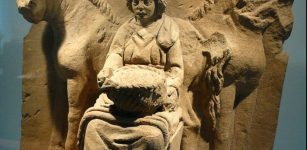 Epona – One Of The Oldest And Widely Known Celtic Deities
Celtic Mythology | Feb 26, 2018
Epona – One Of The Oldest And Widely Known Celtic Deities
Celtic Mythology | Feb 26, 2018 -
 Ice Age Cycles Played A Key Role In Early Human Interbreeding
DNA | Oct 19, 2023
Ice Age Cycles Played A Key Role In Early Human Interbreeding
DNA | Oct 19, 2023 -
 Fatocuriosos.club Guilty Of Hundreds Of Copyright Violations Is Stealing Content Daily From AncientPages.com
News | Sep 22, 2022
Fatocuriosos.club Guilty Of Hundreds Of Copyright Violations Is Stealing Content Daily From AncientPages.com
News | Sep 22, 2022 -
 Hasankeyf – 12,000-Year-Old Mesopotamian City Will Be Destroyed – Decision Sparks Outrage And Controversy
Archaeology | Aug 28, 2019
Hasankeyf – 12,000-Year-Old Mesopotamian City Will Be Destroyed – Decision Sparks Outrage And Controversy
Archaeology | Aug 28, 2019 -
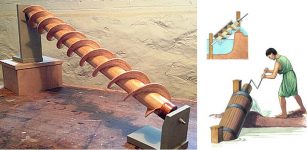 Archimedes’ Screw: Ancient Invention Used To Transfer Water To Higher Levels
Ancient History Facts | Aug 30, 2018
Archimedes’ Screw: Ancient Invention Used To Transfer Water To Higher Levels
Ancient History Facts | Aug 30, 2018 -
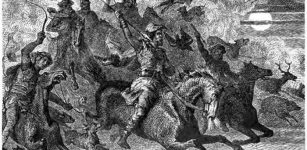 The Wild Hunt – Danger Of Seeing The Phantom Army Of Odin
Featured Stories | Nov 7, 2021
The Wild Hunt – Danger Of Seeing The Phantom Army Of Odin
Featured Stories | Nov 7, 2021 -
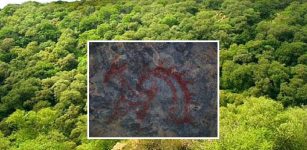 Haryana Caves In Mangar Bani Hide An Ancient Secret – Are These The Oldest Cave Paintings In India?
Archaeology | Jul 28, 2021
Haryana Caves In Mangar Bani Hide An Ancient Secret – Are These The Oldest Cave Paintings In India?
Archaeology | Jul 28, 2021 -
 Magnificent 2,000-Year-Old Treasure Found In Wales Could Point To An Unknown Roman Settlement
Archaeology | May 12, 2023
Magnificent 2,000-Year-Old Treasure Found In Wales Could Point To An Unknown Roman Settlement
Archaeology | May 12, 2023 -
 Fossil Bones From The Largest Penguin That Ever Lived Unearthed In New Zealand
Fossils | Feb 10, 2023
Fossil Bones From The Largest Penguin That Ever Lived Unearthed In New Zealand
Fossils | Feb 10, 2023

